Adventurous Kate contains affiliate links. If you make a purchase through these links, I will earn a commission at no extra cost to you. Thanks!
When I was in high school, I was in a performance of Brigadoon. The show — cheesy, but featuring some very beautiful songs — is set in the Scottish Highlands.
Brigadoon couldn’t have painted a prettier, happier picture of life in the Highlands — weekly markets filled with cheerful merchants, beautiful fields of heather, proud Scottish sword dances, friendly townspeople with musical accents. And though the show has its share of death and destruction, life in the Highlands, overall, was good.
Of course, life isn’t remotely like a Lerner and Lowe musical. But I still carried images of Brigadoon in my head when I pictured the lives of my ancestors in Scotland, so many generations ago.
My mom can trace her father’s side of the family back to Scotland — McLeans and MacDonalds from Skye and Inverness — and while my dad’s family claims exclusively French Canadian ancestry, with a last name like mine, it’s highly probable that a Scot sneaked his way in.
One of my travel priorities from the last year was to start visiting my family’s ancestral homes in Europe. This was my first time getting to see the Highlands. And as beautiful as the landscape was, I was shocked at the history that I learned.
On this trip I learned just how dark and difficult life in the Scottish Highlands used to be.
Difficult Living Conditions
Scotland is cold in the winter– while not coldest I’ve ever been, the Scottish chill is hits you on an entirely different level. The dampness seeps into your bones and stays there, leaving you cold for days afterward.
Of course, it warms up considerably in the summer, but weather in Scotland is cool and overcast with intermittent rain more often than not. “Scotland is the best country in the world. But if we had good weather, Scotland would really be the best country in the world,” our lovely Haggis guide Kay said wistfully.
That evening, we got to meet a true Highlander — Ken of the Clansman Center of Fort Augustus. Clad in an authentic kilt — the kind YOU are expected to fold yourself, not the modern kind with pleats already stitched in — he wove a narrative of the difficult life in the Highlands.
Life expectancy here was low — living into your 50s was a laudable achievement. Most children died, and large extended families lived in single-room houses.
They sterilized their kilts the best way they knew how — by soaking them in urine.
Coats didn’t exist. Women simply wrapped a thin piece of fabric around their bodies like a shawl.
The single most shocking thing to me? People went barefoot nine months of the year. The other three months, they simply tied pieces of cloth around their feet.
And to think that I didn’t wear a kilt on New Year’s Eve because I didn’t want to be cold.
Scotland was so beautiful, but how did people live here?!
I’ve seen people struggle across the world. Naked children running in the street on Phnom Penh’s riverfront. Somali refugee families imprisoned in Bangkok’s International Detention Center. South African women giving birth in townships with an AIDS infection rate of 80%.
But I’ve never thought of struggling to live while being constantly, constantly cold.
The Glen Coe Massacre
To survive in the Highlands, people depended on the hospitality of others. When a group of Campbells led by Captain Robert Campbell arrived in Glen Coe in 1692, the MacDonald clan didn’t hesitate to take them in.
They repaid them by murdering them and burning their homes. 38 men were killed in their homes or on the surrounding land. 40 women and children died of exposure.
These crimes, as horrifying as they were to begin with, were seen as the ultimate heinous act — because the MacDonalds opened their homes and lives to the Campbells and were deceived.
Glen Coe retains an air of grandeur, its hills rising in the mist. This area is absolutely stunning and was even used for the end scenes of Skyfall.
But that beauty can’t erase the horror draped over Glen Coe like a thick blanket. Highlanders believe that the origin of Friday the 13th comes from this massacre, and to this day, Campbells are viewed with suspicion in the Highlands.
Culloden Battlefield
The destination that moved me the most was Culloden Battlefield, just outside Inverness. In 1746, the final battle of the Jacobite Uprising took place here. Between 1,500 and 2,000 Highlanders were killed by the English, far fewer of whom were killed.
This may have been the final battle, but it was the beginning of a cultural genocide. The English sought to eliminate all Scottish traditions, from language to culture to dress, and assimilate them into Great Britain.
Men, women, and children were killed here and assigned to mass graves by what they were wearing.
The battle was very short. It took an hour, and they were gone.
It was hard enough to live to adulthood in the Highlands. The people on Culloden that day were survivors. And yet their lives were extinguished in the blink of an eye.
Many MacLeans died here, as did MacDonalds. I wonder how many of my relatives took their last breaths on this field. I wonder how terrified they were.
The Dark Side of Scotland
I know this is a very negative post — far more so than usual. But the Highlands were one of the most thought-provoking places I’ve visited in a very long time, with or without the family connection.
Come to the Scottish Highlands for the beauty. Come for the outstanding pictures you’ll take. But take the time to learn about this region’s dark and difficult history, too.
Essential Info: Our trip to the Highlands was Haggis Adventures‘ three-day Skye High tour. Rates start at £119 ($192) for adults and £115 ($185) for students and include guides and transport but not accommodation or food.
This campaign is brought to you by Edinburgh’s Hogmanay and is sponsored by Visit Scotland, ETAG, Edinburgh Festivals, Haggis Adventures and Skyscanner. The campaign bloggers were sourced and managed by iambassador. All opinions, as always, are my own.
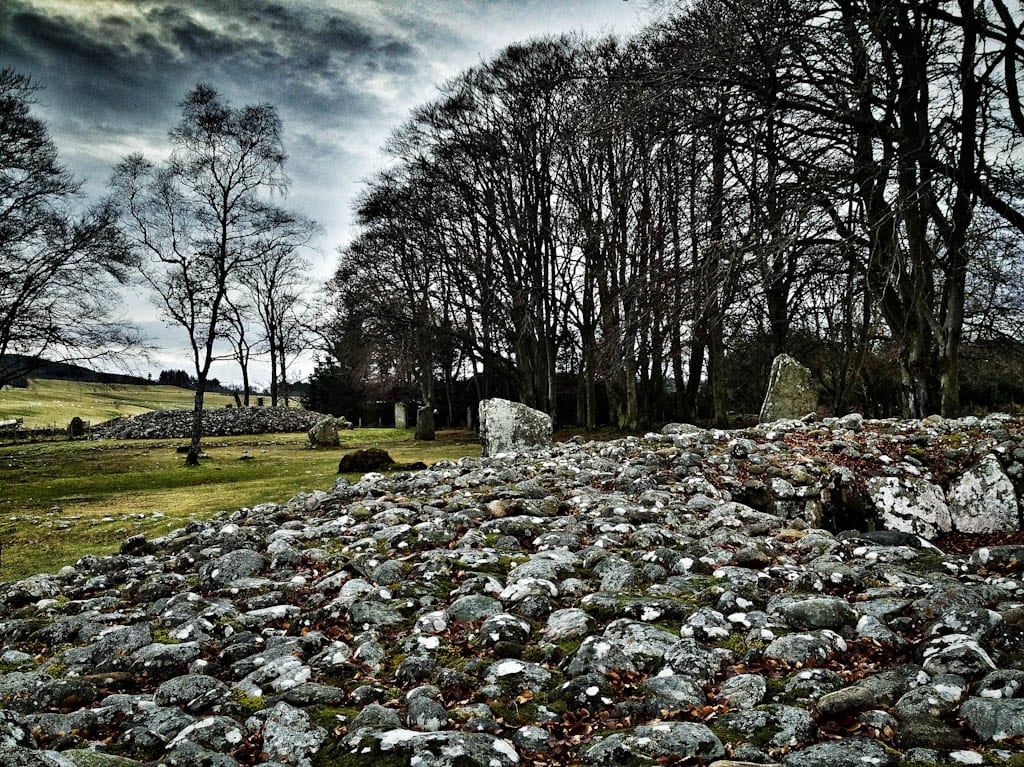
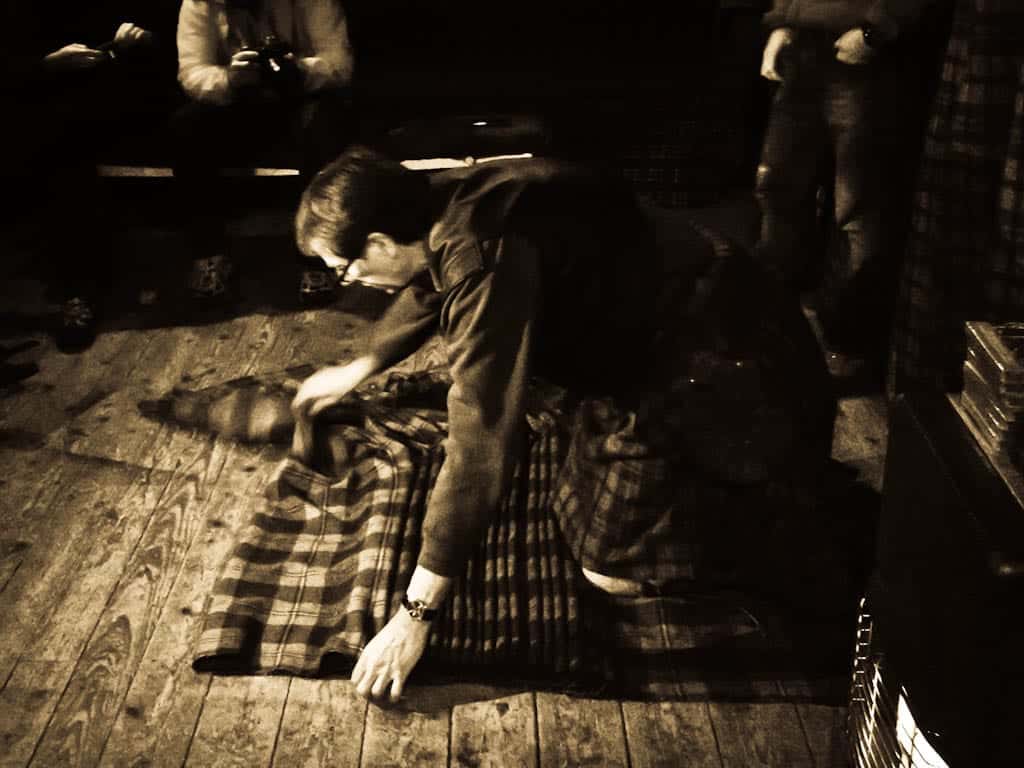
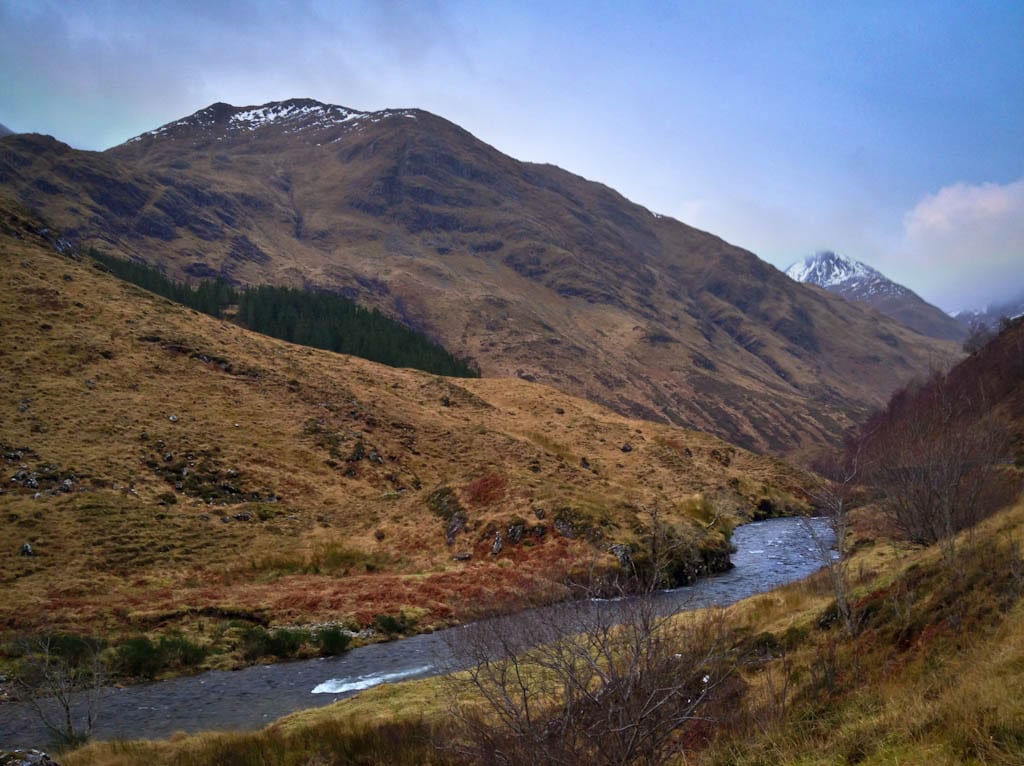

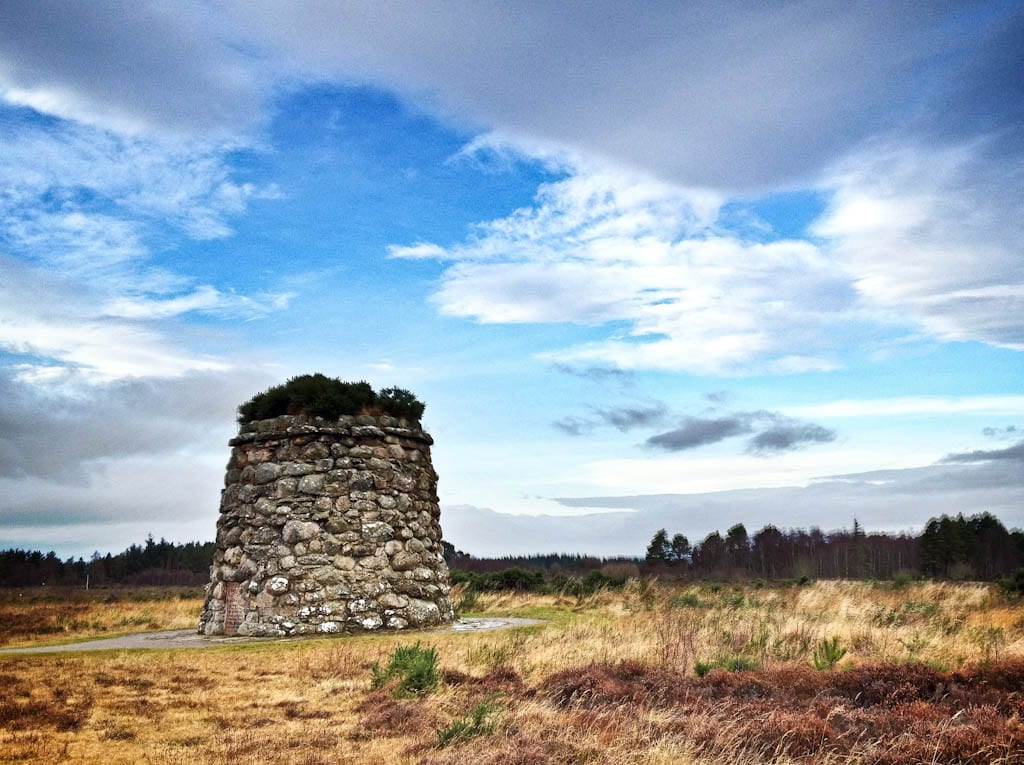
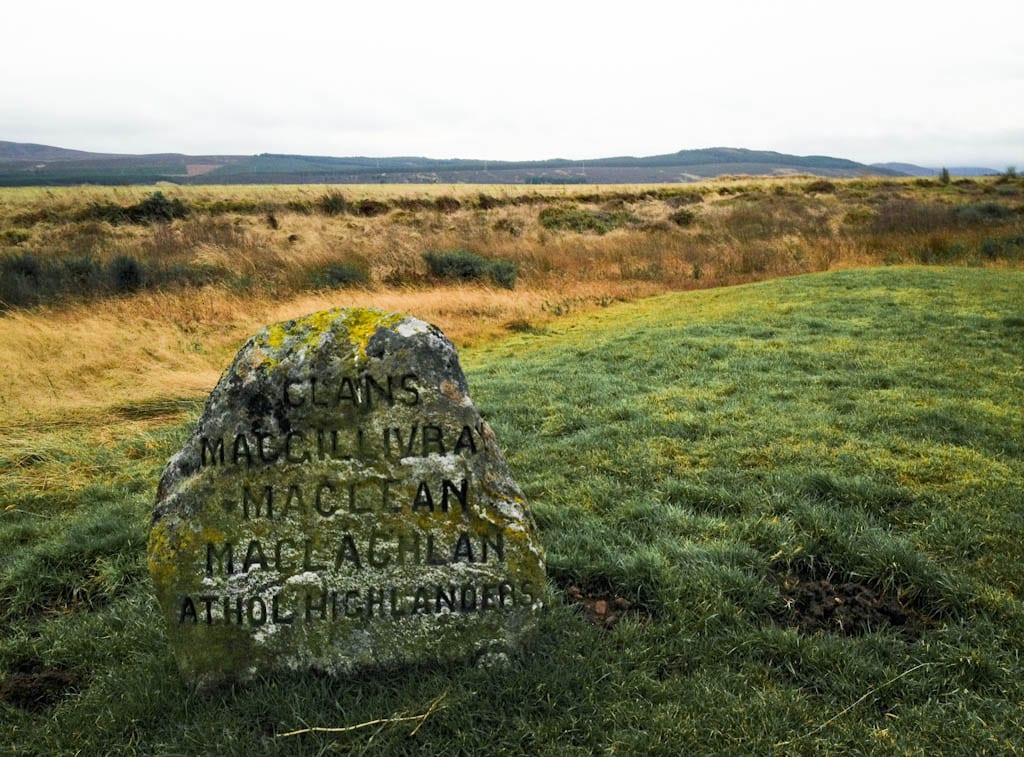
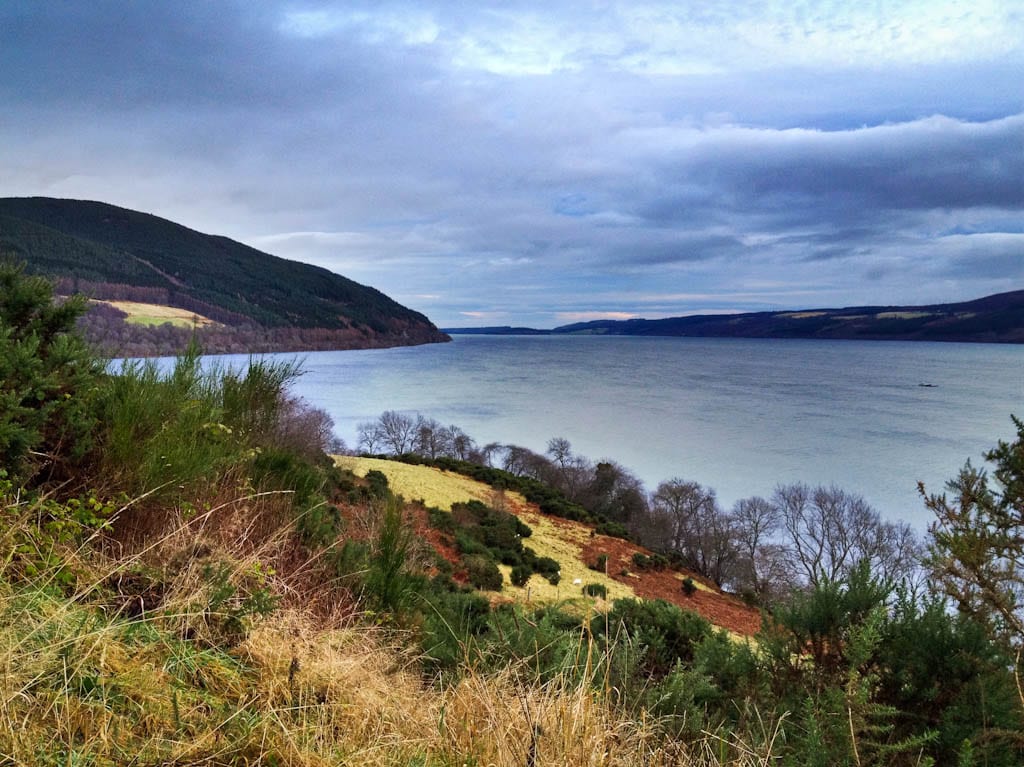
Great post babe.. it’s true that you cannot truly appreciate the beauty without first understanding the horror. I miss Scotland for all its hidden gems and I miss hanging out with you! Come visit soon, Kate (and Mario!)
I miss exploring Scotland with you, too! Hope to see you later this year in KL.
Mainly though, I think you miss ME 😀
Glad you girls took so much from the trip. I’m doing a presentation about Blogmanay on Wednesday. Looking forward to reliving the experience!
Aww, Kay, I miss you! You were a fantastic guide! Hope the presentation went well this week.
I’ve driven through the Highlands before, but never taken the time to really explore. It is indeed extremely beautiful, but everywhere has a past and it’s always worth taking the time to find out about it, no matter what. I’ve learned something from this post! A great thought provoking read.
Thank you, Clare. I think it’s important to learn the dark sides as well.
Without the dark, we wouldn’t be able to appreciate the light. Great post!
Its not like you get much sunlight in Scotland, but you would be right was that the case…
Great post, Kate, as well as great photography. I actually have been to the Isle of Skye but had never considered how difficult life must have been there at one time… this post was also particularly interesting to me because I am of partial Scottish descent.
“…It’s a good Scottish weather madam. The rain falls straight down, only slightly to the sideline…”
Great post btw.
Dang, that’s definitely not something you’ll learn from a travel brochure! Lovely photography!
I like that you tell stories 🙂 it was very interesting to read!
Difficult to know what to say to this, other than thanks for writing it, which can’t have been easy. The photography is as stunning as ever, but can’t mask the horror that you found there. For me, a greater evil were the Highland clearances, which occurred when landlords realised that they could make more money from sheep that from the crofters who made a living from the land. Entire communities where evicted from their ancestral homes to make way for sheep.
That’s awful, Brian. The Scots went through so much.
This adventurous Cate is new to your site, but a Campbell who never forgets. Keep up there good work, my namesake.
Thank you very much!
Really fascinating. I’ve always thought of the Scottish Highlands as being cold, but beautiful, but great to also consider the history as well. And I had forgotten Brigadadoon was set there! You’re right — somehow I doubt there was much to sing and dance about.
Very intense, but the best posts are!
Great post, Kate. I’d heard of the history between the Campbells and the Macdonalds before, but had no idea about other factors that made living in the Highlands so tough. I couldn’t imagine being in that kind of cold with nothing on my feet or only thin layers of cloth to keep me warm.
I’ve been doing a lot of reading about Scotland over the past few days as I was considering visiting the Scottish islands for my birthday in the summer. Ultimately, I decided against it (the general consensus of my alcoholic friends is that twinning Amsterdam & London is a better idea) but hey, glad I read this – learned something new today 🙂
Yeah, I saw that earlier! I mean, it’s beautiful up there, but so cold! Amsterdam will be fun. And I hope I get to hang out with you at some point when you come back to the UK (I’ll be missing you in Boston!).
This post made me go silent.
It happens all over the world and sitll I don’t understans why so many groups of people want others to be just like them… by any means.
Nice work getting all that history down Kate, and great pics!
Thanks, Peter! I couldn’t remember all those epic stories, though…
Despite the cold and rain I do love Scotland. The scenery is so beautiful and the Scots are so funny and warm. They have had a tough history, but they were certainly very brave people as well.
A very fascinating post. My husband and his family are from the Scottish highlands.
I was in Scotland for a couple weeks in September, and we didn’t see a dark side to the Highlands. It rained, sure–it always does–but it was one of those weird, sunny rains, with rainbows around every corner.
And I meant “dark side” in the literal sense, as it is quite black and gloomy in your pics! Obviously, the battlefields and scars were still there when we were 😉
the bit about the “Highlanders were killed by the English”. They were not “the English” they were Redcoats – made up mainly of English and Scottish Lowlanders.
Yes it was a Civil war but not one between English and Scottish. It was Jacobite Vs Redcoats
Carl is correct it was NOT a scottish english war but one between the catholic jacobites from scotland and ireland against the british redcoats to overthrow the german hannoverians whose ” German” name is Mountbatten” by the way not windsor, they changed the name during the war with Germany to stop them being hated by the brits. The jacobites fought to put the rightful royals in place which was the stuarts and would have won if not for a few silly mistakes. People should not get mixed up with what is scottish – english war. The scots won the war in effect when they defeated and massacred the largest ever english army to be assembeled at bannockburn in 1314, just a few years after london murdered william wallace, it was Robert the Bruce that then invaded england where edward iii pleaded for mercy for the Bruce to not invade london. The Scots won their independence and killed or kicked out all remaining english from scotland. The scots by this act won the war and that was that!!
We visited Scotland last summer and saw many of the same things. It was beautiful, but in a rugged and haunting way. We also learned of the Highland Clearances, when sheep were more valuable than people, and the wealthy landowners turned out their farming tenants in order to raise sheep. Harsh!
How amazing to be able to trace back your family history like this. So twisted and dark, very interesting.
I went on a road trip in Scotland with my mum last summer to revisit some old favourites of mine, and a few new ones. I went to Glen Coe specifically for the history of the place and found the monument they’ve put up in rememberance absolutely beautiful. Not overdone and in a quiet area, it was just me and my mum there when we visited.
A lot of Scotland looks like Norway, not surprising considering the location, and I find it simply stunning, but I agree with what you say about the cold… Sometimes we Norwegians wonder why on earth someone decided to -settle- so far north as Scotland, Norway etc… Mad men 😉
Carl is correct it was NOT a scottish english war but one between the catholic jacobites from scotland and ireland against the british redcoats to overthrow the german hannoverians whose ” German” name is Mountbatten” by the way not windsor, they changed the name during the war with Germany to stop them being hated by the brits. The jacobites fought to put the rightful royals in place which was the stuarts and would have won if not for a few silly mistakes. People should not get mixed up with what is scottish – english war. The scots won the war in effect when they defeated and massacred the largest ever english army to be assembeled at bannockburn in 1314, just a few years after london murdered william wallace, it was Robert the Bruce that then invaded england where edward iii pleaded for mercy for the Bruce to not invade london. The Scots won their independence and killed or kicked out all remaining english from scotland. The scots by this act won the war and that was that!!
Hi Kate, thanks for the post. It’s interesting to hear what other people think of your own home. I’m a highlander but I’m now an expat to the country, so it got me pining for home a bit and wanted to know others’ opinions of the highlands in general.
I think normally you don’t pay a great deal of attention to the past, but it’s definitely always there – kind of present, but sitting in the background I suppose. The same can be said of the scenery! You hardly notice it (until you go live elsewhere and come back with a more neutral view on things). And regarding the cold – yeah I do know what you mean – when I was young, the weather never bothered me at all. We seemed to wear tshirts most of the year and not really care, and I had to come to a warmer country to start feeling the cold!
I agree, Drew — you don’t notice what you have until you go elsewhere. And on that note, New England has the best fall foliage in the world!
Nothing wrong with showing the dark side a little love…if only to show people the realities that are associated with various places in the world. It’s not all sugar and peaches and fluffy white pillows and perfect traveling conditions.
wonderful post kate
here’s an interesting story.
my nanny(in the highlands thats the name for granny)died last year,she was 101 years old.when my mam went to register her death it was as though she never existed,no records at all.so her funeral was postponed until they could verify who she was.after about a week or two they worked it out.she’d been using a false name all her life,it also turned out her first language was gaelic,she’d been married to my grandad over sixty years and never told him any of this
why did she do this?she’s from tongue right in the very far reaches of the highlands(bandit country) and she had a traditional gaelic name and spoke only gaelic,and way back in the early 20th century when she set off for inverness to make a new life those were things that would leave you shunned by society,it would have been like being a black man in the deep south during segregation.a position of constant torment and abuse.
but being a stoic highlander she kept it all to herself,never complained and never told a soul.
anyway thought i’d share that story.
Hi Gregory, I’m a romance writer. Your nanny’s story caught my interest and it sparked curiosity in me. I’m doing a lot of research about the scots and the highlanders as of now and I must say that your nanny’s story is really interesting. Would it be okay with you if i ask you to tell me the whole account of her story?
Cultural genocide is 1000 times more worst than genocide itself. .
Hi Kate,
I’m very keen to travel to Scotland next year on a solo trip of the UK. Haggis Adventures seems like a good deal, but would you recommend them? What is the accommodation like (seems you pay-as-you-go or in advance for add-ons)? Average age of the groups? I’ve travelled alone 90% of the time before so I’m not worried about the social or sharing aspect, rather just the quality 🙂
Thanks for the advice!
I would recommend Haggis Adventures, because they ROCK, but keep in mind that their tours skew young toward the hostel/partying set. Up Helly Aa is different because it’s the only Up Helly Aa tour that exists, so it had people of a bigger variety of ages.
Thanks! I did think that might be the case given the accommodation type offered. Are there any other tours / ways of travel you’d recommend for seeing quite a lot of Scotland as a solo traveller? I have 2 weeks to spare there 🙂
I haven’t experienced any other company in Scotland, thus can’t recommend one, but there are many that go there.
I too felt very emotional while visiting the Highlands. I am a mom and I pictured having to survive and protect my babies from all that brutality. I makes you wonder why anyone wanted to reproduce! Scotland is such a gorgeous place it is hard to imagine the horrors that happen on those beautiful rolling hills. .
Hi there lass
Never forget the beauty of Scotland on my cycle trip from Glasgow to Brighton, with my companion, the violin.
https://web.facebook.com/photo.php?fbid=1528999394077877&set=a.1524926161151867.1073741830.100009034921105&type=3&theater
So, now I am pondering and finding a permanent place to rent in rural Scotland……knowing about the mist and the rain……
ed
My ancestors are from Dingwall which is a bit north west of Inverness. My son Ian and I spent 2 weeks in the highlands last October and enjoyed unusually beautiful weather. We wouldn’t have come home if we could have figured out a way to stay.
Kate
Well done. Just as horrific were the highland clearances, continuing the genocide.
The highland diaspora was not voluntary
My family is from the Hebrides (isle of Lewis) and came from there to Northern Ireland and then to Nova Scotia ending in Boston.
Culliden was not the end but the beginning
Let’s be clear. Genocide is what the “clearances” were. Not satisfied just to get rid of the people, the landlords burnt the houses of those who left, and burnt the churches, so that the births and deaths recorded in church registers would be erased. It was as if the people had never been.
It didn’t work. The Gaelic language and Scottish culture was taken overseas to places like Cape Breton. Old music that was lost in Scotland has been preserved by the Diaspora. More people of Scottish origin live overseas than now live in Scotland. Highland Games celebrate this history, all over Canada and the U.S. So there!
Our Gaelic language and music is very much alive and thriving in Scotland. Yes , many 1000s crissed the oceans and took their culture with them but it did not die out here. Our traditional music scene is brighter and more vibrant than it had ever been and you will still hear Gaelic being spoken in the streets of Stornoway, Inverness and Gaelic. And that is as much down to the resilience and determined nature of our folks. So the language and culture may have gone overseas- and we are very proud of our links with the Diaspora- but the Diaspora are not the sector to have saved our heritage. That would be us.
My ancestor, William A Gillespie, crossed over in 1768. I have always suspected because of the Redcoat invitation his families way of life was lost.
Great article. There is no place like the Highlands
My family traces it’s roots to the Badenoch area.
Another favorite of mine is Edinburgh. I spent time in the U.K. when I was in the Navy traveled to Edinburgh every chance I got.